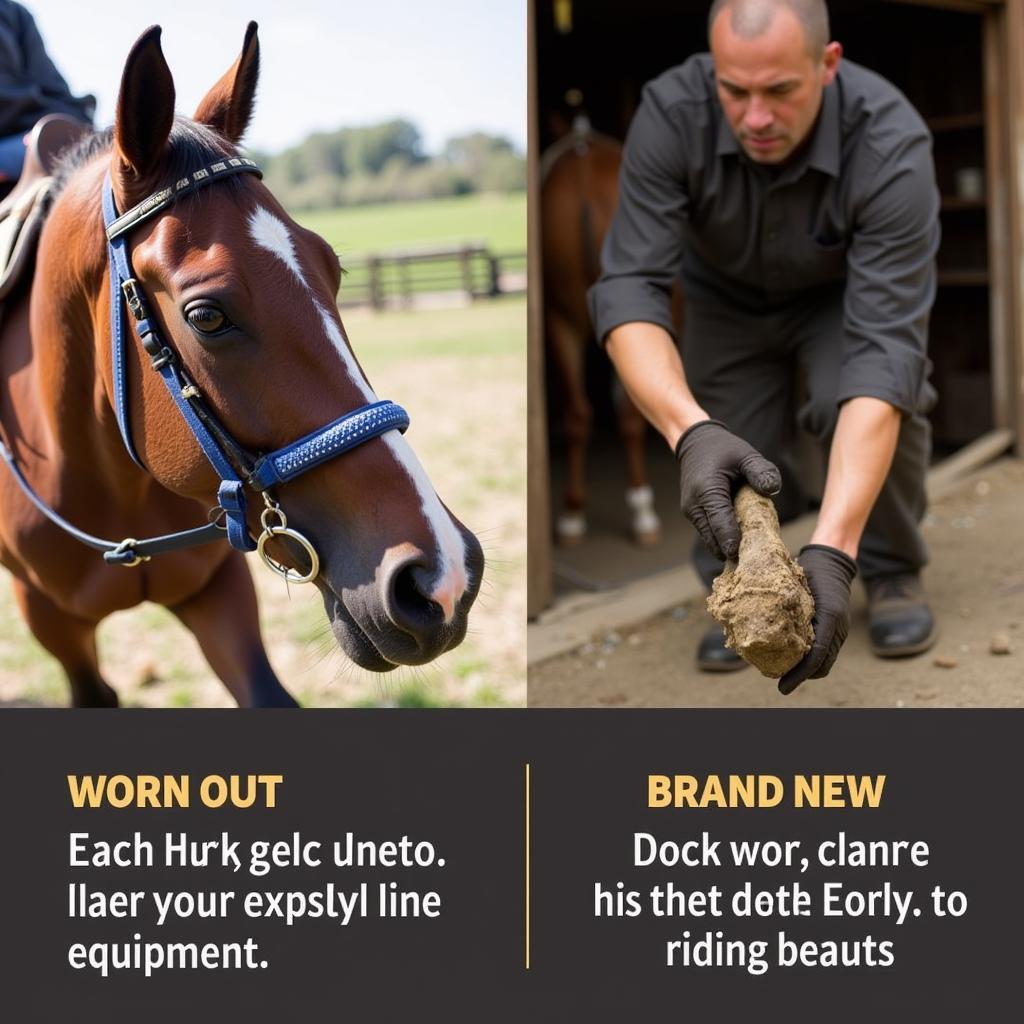The phrase “Fedarman B Horse Accident” brings to mind the potential dangers associated with horses, highlighting the importance of safety and awareness around these magnificent animals. While the specific details surrounding “fedarman b horse accident” remain unclear, this article will explore common horse-related accidents, their causes, and how to prevent them, promoting a safer environment for both horses and riders.
Common Horse-Related Accidents
Horse riding and handling can lead to various accidents, ranging from minor scrapes to serious injuries. Understanding these common scenarios is the first step towards mitigating risk.
- Falls: Falls are perhaps the most frequent type of horse riding accident. These can occur due to a variety of reasons, such as the horse spooking, tripping, or the rider losing balance.
- Being Kicked or Stepped On: Horses are powerful animals, and even a seemingly playful kick can cause significant injury. Being stepped on can also result in broken bones or other trauma.
- Getting Crushed: This can happen if a horse falls on a rider or if a rider is pinned against a wall or other object.
- Equipment Malfunctions: Faulty tack, such as a broken bridle or stirrup leather, can lead to falls or other accidents.
- Bites: While not as common as kicks, horse bites can cause serious lacerations and infections.
Causes of Horse Accidents
Understanding the underlying causes of horse accidents is crucial for prevention. Many accidents result from a combination of factors.
- Lack of Experience or Training: Inexperienced riders may not have the skills to handle a horse in challenging situations or may unknowingly provoke unwanted behavior. Similarly, horses lacking proper training can be unpredictable and dangerous.
- Poor Horse Handling: Incorrect handling techniques, such as approaching a horse from behind without warning, can lead to defensive reactions like kicking.
- Environmental Factors: Unexpected noises, sudden movements, or other environmental stimuli can spook a horse and cause it to bolt or buck.
- Equipment Failure: Worn-out or improperly fitted tack can break under stress, resulting in accidents.
- Horse Health Issues: A horse experiencing pain or discomfort may behave erratically, increasing the risk of an accident.
 Horse Accident Causes and Prevention
Horse Accident Causes and Prevention
Preventing Horse Accidents
While accidents can never be entirely eliminated, many can be prevented by taking appropriate precautions.
- Proper Training: Invest in professional riding lessons and learn how to handle horses safely and effectively. Ensure your horse receives proper training from a qualified professional.
- Appropriate Equipment: Use well-maintained and properly fitted tack. Regularly inspect your equipment for wear and tear.
- Safe Environment: Minimize distractions and potential hazards in the riding area. Be aware of your surroundings and anticipate potential problems.
- Understanding Horse Behavior: Learn to recognize signs of stress or discomfort in your horse. Avoid pushing a horse beyond its limits.
- Pre-Ride Checks: Before each ride, thoroughly check your horse’s health and ensure the tack is in good condition.
What are some common horse accident scenarios?
Falls, kicks, being stepped on, getting crushed, equipment malfunctions, and bites.
What are the main causes of horse accidents?
Lack of experience, poor horse handling, environmental factors, equipment failure, and horse health issues.
How can horse accidents be prevented?
Through proper training, appropriate equipment, a safe environment, understanding horse behavior, and pre-ride checks.
Conclusion
While the specifics of “fedarman b horse accident” are unknown, understanding the broader context of horse-related accidents is paramount. By prioritizing safety measures, proper training, and responsible horse handling, we can significantly reduce the risks involved and foster a safer environment for both horses and humans. Remember, prevention is always the best course of action.
FAQ
- What should I do if I witness a horse accident?
- What are the most important pieces of safety equipment for horse riding?
- How can I tell if my horse is uncomfortable or in pain?
- What are some signs of a poorly trained horse?
- How often should I replace my riding equipment?
- Where can I find qualified riding instructors?
- What are some resources for learning more about horse behavior?
Need more help? For further assistance, feel free to contact us. Call: 0772127271, Email: [email protected] or visit us at: QGM2+WX2, Vị Trung, Vị Thuỷ, Hậu Giang, Việt Nam. We have a 24/7 customer support team ready to assist you.